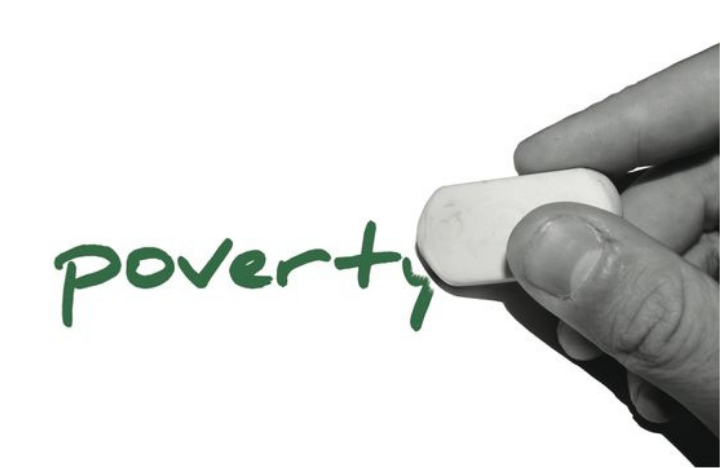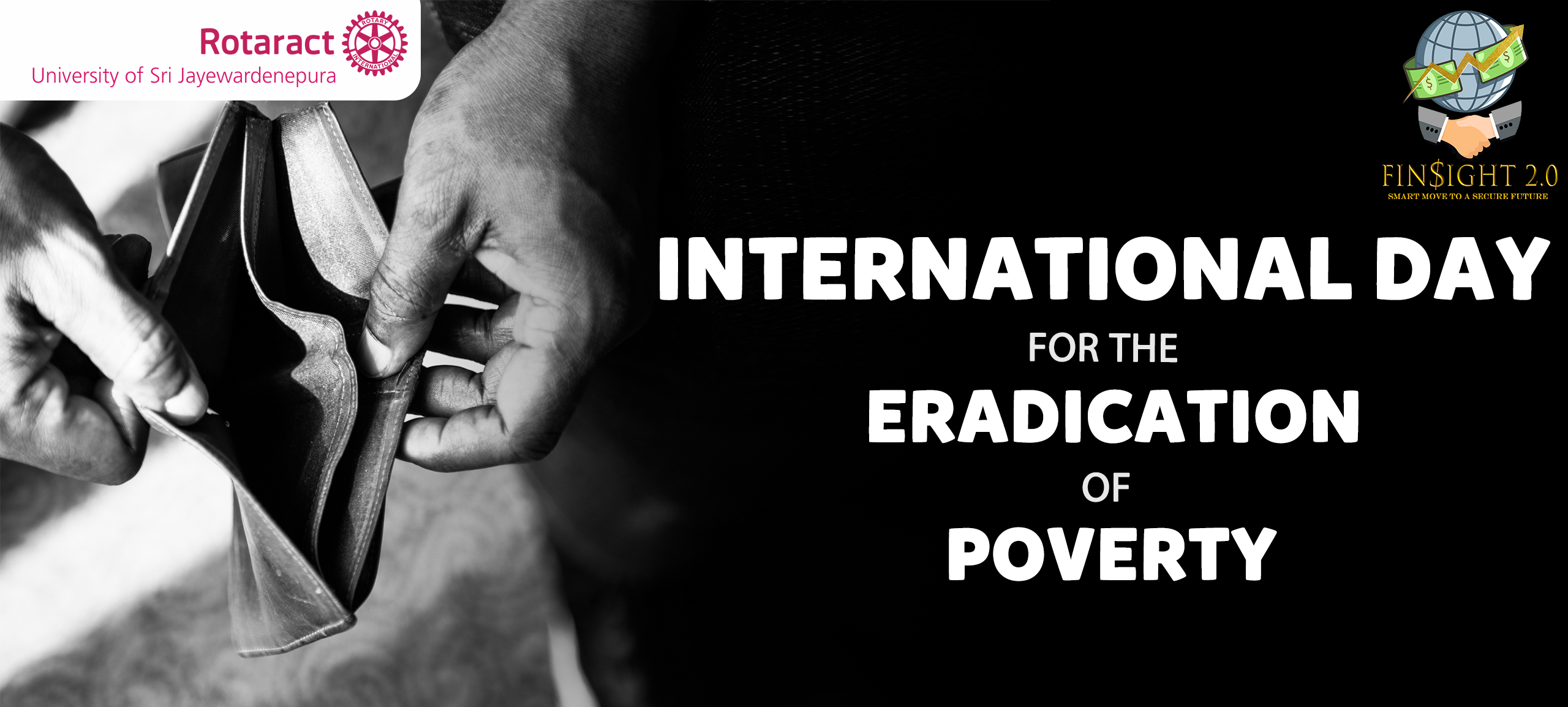The International Day of Eradication of Poverty is an observance celebrated each year on the 17th of October throughout the world.
The first commemoration of the event took place in Paris in 1987. On the day of implementation of the day, a hundred thousand people gathered to honor the victims of extreme poverty, violence, and hunger. They proclaimed that poverty is a violation of human rights and affirmed the need to come together to ensure that these rights are respected. This day promotes dialogue and understanding between people living in poverty and their communities and society at large.
“Poverty is not natural, it is manmade”
-Nelson Mandela
The above statement is true as the causes of poverty are generally man-made. There are various causes of poverty but the most important is population. The rising population is inducing the burden on the resources & budgets of countries. Governments are finding difficulties in providing food, shelter & employment to the rising population.
The other causes are lack of education, prolonged war, natural disasters, lack of employment, lack of infrastructure, political instability, and many more.
For instance, the lack of employment opportunities makes a person unable to earn enough to fulfill the basic necessities of their family. Lack of education compels a person for less paying jobs and it makes them end up poor.
Lack of infrastructure refers to no industries or banks in a country resulting in a lack of employment opportunities. Natural disasters like floods, earthquakes also contribute to poverty in a country.
Global poverty is one of the very worst problems that the world is facing today. The under-developed countries in the world are often hungry, have much less access to education, regularly have no light at night, and suffer from poor health. As stated above the lack of these essential resources add up to increasing poverty in those countries.
Making progress against poverty is one of the most urgent global goals. According to the World Bank, about 9.2% of the world’s population lives in extreme poverty.
Nearly 22,000 children die each day due to living in poverty. The Covid-19 pandemic drove an additional 97 million people into extreme poverty in 2020 according to the World Bank estimates.
Local and national lockdowns led to a collapse in economic activity that reduce or eliminate sources of income and accelerated poverty.
Poverty in Sri Lanka is measured by the Department of Census and Statistics, which is estimated by the headcount index, poverty gap index, and poor household percentage using census data and the household income and expenditure survey data.
Sri Lanka is working hard to reduce poverty with its partners such as United Nations Development Program and the World Bank. Our country has a number of development barriers. The economic growth has been under the country’s potential, and the unequal development has put the Western Province ahead of the other parts of the country. Political involvement in the country’s economy also is a cause for the country’s poverty in the long run. While sustainable development is ongoing in the country, poverty in Sri Lanka is still a significant issue.

The impact of COVID-19 on poverty in Sri Lanka is clearly visible in the labor market and job stability. Prior to the COVID-19 pandemic, Sri Lanka had made significant progress in reducing poverty. However, many workers still work in agriculture and service with low income and poor job quality and job security. About 70% of these jobs fall in the informal sector, a sector vulnerable to job losses and wage cuts.
Increased unemployment along with low wages and a lack of opportunity put workers in a tough situation when the pandemic began. Even workers who had formal, permanent employment still clearly felt the effects of the pandemic. For instance, certain import and export industries struggled due to decreased demand and restrictions on travel.
However, the pandemic caused these groups of people to lose their stable wages and fall below the poverty line, contributing to an increase in overall poverty in the country.
“End poverty in all its forms everywhere”
By 2030, as a part of the United Nations’ Sustainable Development Goals, global leaders aim to eradicate extreme poverty for all people everywhere. The goal has seven targets and thirteen indicators to measure progress.
Some countries took several measures to eradicate poverty. Some of them are creating employment opportunities and controlling the population as an extreme measure to eradicate poverty in society.
In countries dependant on agriculture such as ours, it is essential to take steps for cheap availability of seeds, farming equipment, and also proper and easy irrigation methods to promote agriculture.
Poverty is a social evil, and we can contribute to controlling it. We should put the best intent in our minds forward and try to work together to gradually increase the living standards of our country by individually contributing to the growth of the Sri Lankan economy.
Written by Rtr. Hiruni Imalsha



Good job Hiruni Imalsha